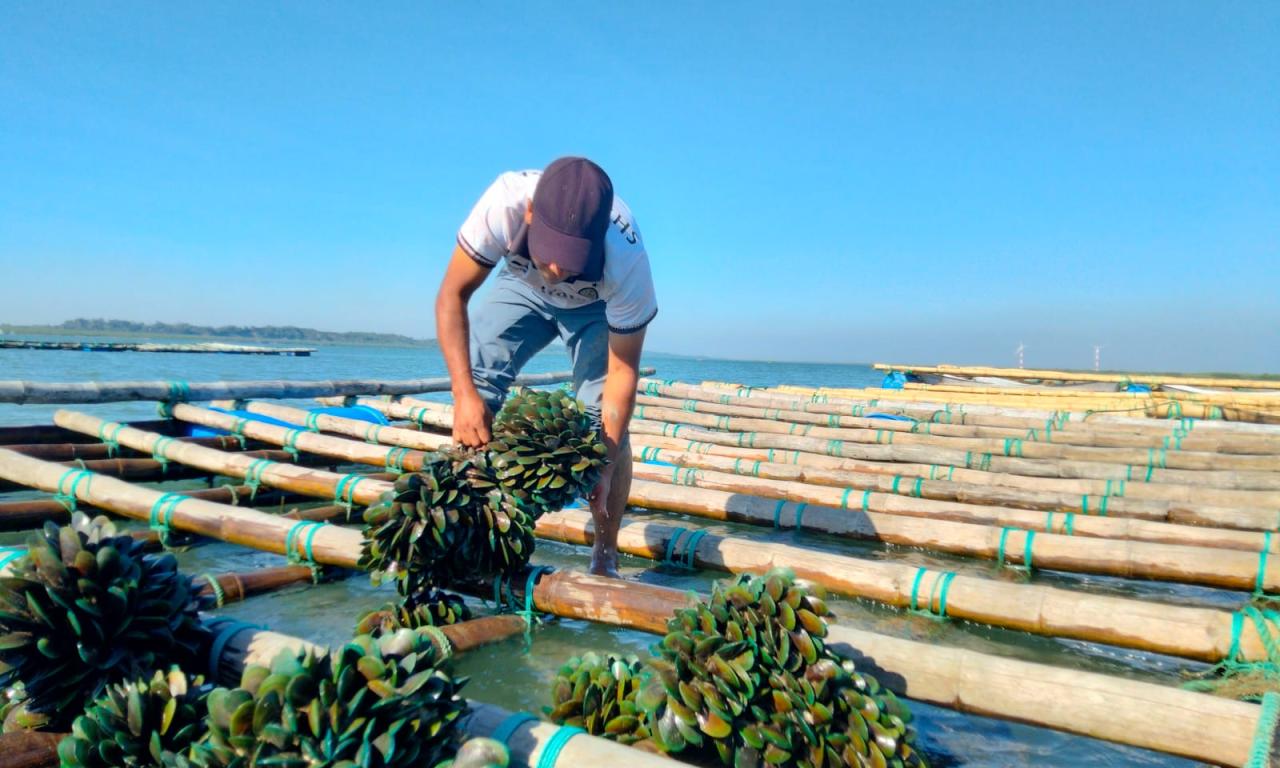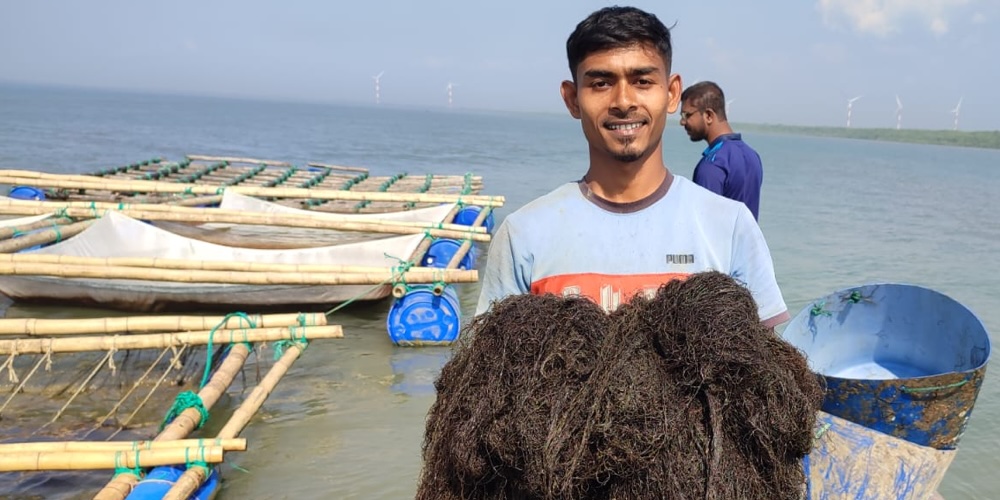
The decline in fish stocks due to overfishing has severely affected the livelihoods of fishing communities in coastal Bangladesh. They are often totally dependent on fishing for their income, making them susceptible to fluctuations in fish availability and market demand. New and sustainable aquaculture options are urgently needed to reduce this vulnerability.
One promising approach is integrated multi-trophic aquaculture (IMTA), which WorldFish and research partners in Bangladesh are now testing and refining along the coast. IMTA can enhance the economic stability of communities, providing employment, improved nutrition, and increased income. Additionally, IMTA can also play a crucial role in combating climate change through carbon capture.
The WorldFish Asia-Africa BlueTech Superhighway (AABS) initiative, one of the focus areas of which is to adapt and implement IMTA tailored to local contexts in Asia and Africa, has been assessing and testing IMTA practices in coastal Bangladesh. This evaluation takes into consideration a range of technical, environmental, social, and market factors.
IMTA in Action
Traditional coastal aquaculture systems, where a single or multiple fish species are cultivated, often lead to issues such as nutrient waste, environmental degradation, and market saturation. In contrast, IMTA utilizes natural species interactions by co-cultivating feed species, such as finfish or shrimp, with extractive species like shellfish and macroalgae. This approach effectively converts waste into useful resources for other cultures, enhancing sustainability. A pilot IMTA research conducted along the southeast coast of Bangladesh has demonstrated significant improvements in aquaculture sustainability.
Led by the Department of Marine Bioresource Science at Chattagram Veterinary and Animal Science University (CVASU) and supported by WorldFish AABS, the project focuses on a species of catfish (Mystus gulio), cultivated alongside Asian green mussels (Perna viridis) to utilize uneaten feed and waste and seaweed (Gracilaria sp.) that can absorb dissolved nutrients such as ammonia and nitrates.
“The program has trained 30 fish farmers in near-shore IMTA and 10 in pond-based systems, covering aspects such as system design, species selection, and nutrient management. Continuous monitoring, including water quality analysis and growth performance data collection, aims to optimize the overall system,” said Dr. Md. Asaduzzaman, Associate Professor at CVASU and principal investigator of the research.
The approach has yielded multiple benefits. Improved water quality from nutrient uptake by green mussels and algae has led to better growth and survival rates of the target species, Mystus gulio. The IMTA system has increased overall biomass, reduced feed conversion ratios, and boosted profitability. Environmentally, recycling waste nutrients has cut down discharges, lowering eutrophication risk and promoting ecosystem health.

As part of a pilot initiative, the first harvest of seaweed yielded 600 kg from six rafts within three months. This seaweed was processed to dry weight and sold to generate a revenue of USD 220. This initial success underscores the economic potential of IMTA in diversifying income for coastal aquaculture producers in Bangladesh. “With ongoing adoption, IMTA is expected to improve production efficiency and market competitiveness, ultimately enhancing sustainability and profitability in coastal aquaculture,” said Dr. Asaduzzaman.
“IMTA has changed our way of farming for the better. Our fish are now healthier, they grow faster, and the quality has improved. Additionally, selling green mussels and seaweed has given us extra income, making our work more rewarding. This sustainable approach has boosted our profits and also given us hope for a better future," said Anwar Mia, IMTA producer and proprietor at Khuruskul village in southeast Bangladesh.
The AABS team indicated that the next steps include keeping stakeholders involved, developing skills, and assessing environmental and social impacts. More pilot activities on IMTA are in the plans. Successful pilots will be expanded, and findings will be shared to reinforce the potential of sustainable aquaculture practices.
